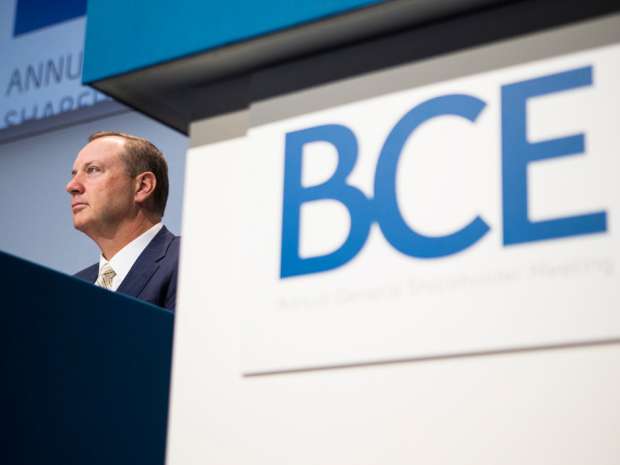David Rosenberg appeared on Bloomberg yesterday with Tom Keene to discuss his outlook for the U.S. economy, and markets.
Highlights of the appearance:
Rosenberg says what's happening right now in banking is we're putting up 8 stop signs at every corner. The pendulum has begun swinging the other way. In the period from 2006-2008 we had leverage ratios in the banking industry of between 30-50 times, and now we're going to run leverage ratios much lower than that, and its going to create much more stability, which is true. It's also going to be creating less economic growth.
This was the debate that was going on in Canada during that time, when the 'Wild West' was being created in the U.S., and there were bankers that wanted to have a situation where we had subprime mortgages, unlimited leverage ratios, for the greater good in terms of economic growth and full employment, and we know how that finished off in the U.S.
Tom Keene brings up the fact that equity markets are up 24% in the last 12 months.
As for equities, Rosie says 90%-95% of this rally everyone's talking about started in March 2009 and ended last April (2011), and since that time 5%-10% of this rally has basically been the 'bulls' fighting over the crumbs ... with the support of central banks - you get the QE, you get the intervention by the ECB, and then you get a rally, and when the intervention dissipates, you get the markets rolling over.
There are sections/segments of the stock market that he likes - Dividend Growth, Dividend Coverage, Dividend Yield, there is probably 20-30% of the stock market he likes.
Rosie then asks why they don't have more bond analysts on the show, and comments that the best performing asset has been 30-year Strip Coupons or Zero Coupon bonds, which returned nearly 50% over the past 12 months. ... Keene admits that Rosenberg hit the ball out of the park on the bond call.
Keene says that the majority of people say that the bond rally is done.
Rosie retorts with "They were saying that a year ago, Tom. They were saying that two years ago, three years ago. "I would say that if the stock market, the S&P 500 had returned 50% over the past year, most viewers would know about that. The zero coupon bond ... it doesn't even make it to like page C10. The whole thing is about the stock market. Its not about 'What have corporate bonds done? What has gold done? We're going on 13 years in a row of it going [straight] up. And we've got the bond market."
On the U.S. Economy:
Rosenberg has been right about the economy too and on inflation.
He said Fisher was wrong, Plosser was wrong, Lacker was wrong. We've got a Fed meeting, with a legitimate debate over what will they do. Keene asks Rosie - "What will they do?"
He replies that at the Jackson Hole meeting, Bernanke mentioned the words 'labour market,' 'jobs,' 'employment,' no fewer than 34 times. And then we get that coup-de-gras, which is that horrible employment number last Friday, so his sense is there is going to be some sort of announcement extending zero percent interest rates beyond 2015. QE is already priced in; the question is, "In what form?" will QE be announced.
If you go back to the 2002 "What If?" meeting, one of those options might be an "explicit interest rate ceiling for the long bond," and that would imply not that we're going to buy $500-600-billion of MBS which is what many Wall Street firms are talking about, but the Fed following in the footsteps of the ECB, and moving toward 'unlimited' expansion of the central bank balance sheet.
What does that mean?
The financial repression means that we have interest rates at zero, savers are being penalized. If you go back to Newtonian physics, which says that every reaction has an opposite and equal reaction, so you're going to penalize pensioners, and you're going to penalize people who don't really spend too much in the economy, to benefit borrowers.
And that is what the Fed is grappling with, because what you want to do is, and "i'm not going to defend the Fed," but what I am going to do is explain what they're trying to do, which is to get the marginal propensity to spend in the overall economy, UP. To get borrowers to spend at the expense of the loss of interest income to savers ...
There is going to be less credit growth for each of unit of GDP, and that means that potential GDP Growth is going to be much slower than it has been in the past 20 years. Its not as bad as 'euro-schlerosis' but it means that you are talking about GDP growth of 2%-2.5%, instead of 4%-4.5%.
The reason Rosenberg is still hanging on to his deflationary outlook, is because demand growth currently stands at 1%-1.5%.
He is sympathetic to PIMCO's "new normal," however, it does not take into account the deflationary output gap that occurs when aggregate demand growth is 1%-1.5% vs. GDP growth is 2%-2.5% (an output gap of 6% over 4 years).
Source: Bloomberg












